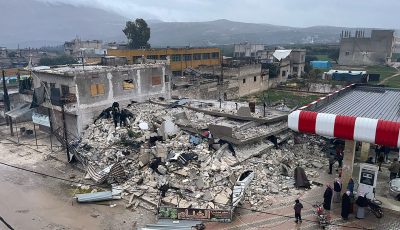IN SEXUAL ASSAULT CASE FILED VS COUPLE
Camacho denies OAG’s request to use redacted confessions at trial
Superior Court Associate Judge Joseph N. Camacho has denied the Office of the Attorney General’s motion to allow the use of redacted statements made by a woman accused of aiding her boyfriend in sexually abusing a girl inside a motel room, at a joint trial.
Camacho determined that if defendant Daisina Suda decides not to testify at trial, the admission of her redacted confessions as evidence would violate co-defendant Parvej MD. Barpery’s confrontation rights.
The OAG redacted Suda’s statements, removing references to Barpery by name.
But Camacho pointed out that although the redacted statements remove all instances of Barpery’s name, they do not remove references to his existence.
Camacho said only two people are alleged to be involved in the crimes charged, so the reference by Suda to “another person” in her redacted statements is akin to her taking the stand and pointing her finger at Barpery; only here, Barpery would not have the opportunity to cross-examine Suda.
“Thus the introduction of the proposed redacted statements would violate Barpery’s confrontation rights, even if the jury were presented with a limiting instruction,” the judge said.
According to court records, Suda and Barpery each face one count of sexual assault in the first degree and one count of disturbing the peace. The court granted the OAG’s motion to try the two jointly.
The government alleges that in May 2013, Barpery sexually assaulted a then 17-year-old girl inside a motel room in San Jose.
The Commonwealth alleges that Suda aided Barpery in the sexual assault by transporting the minor to the scene of the assault, yelling at her and physically restraining her during the sexual assault.
In January 2014, Suda gave two different statements during the investigation of the alleged offense, implicating herself and Barpery in the alleged sexual assault. The OAG redacted the statements, removing references to Barpery by name.
On March 13, assistant attorney general Peter Prestley filed a motion asking for a court finding that introducing the proposed statements as evidence at trial would not violate Barpery’s confrontation rights. Prestley also provided a proposed limiting instruction to be used during trial.
The OAG did not give the court the text of the original statements or a description of how these statements were obtained.
The OAG argued that by replacing Barpery’s name with neutral pronouns, the redacted statements are constitutionally permissible and not a violation of the defendant’s confrontation rights.
At the April 16, 2014, hearing on the motion, Barpery’s counsel, Daniel Guidotti, orally opposed the motion, arguing that introduction of the redacted statements would violate Barpery’s confrontation rights in two ways.
First, Guidotti said that since Barpery will be sitting in the courtroom, the jury need only make a one-step inference to determine that the neutral pronouns in Suda’s statements refer to him.
Second, Guidotti said, because Suda gave two different statements, Barpery’s confrontation rights will be violated because he will be unable to cross-examine Suda about the inconsistencies between those statements.
Suda, who is represented by attorney Samuel Mok, expressed no opinion concerning the motion.
In denying the motion, Camacho said the introduction at a joint trial of a non-testifying co-defendant’s confession that names the defendant and implicates him in a crime violates the defendant’s right to confront the witnesses against him.
From the statement, Camacho said, it is clear that there were only two people allegedly involved in the crime and only two people are on trial, so the reference to “another person” refers to Barpery.
Camacho determined that even if Suda’s redacted statements were the first piece of evidence to be introduced at trial, the jury could infer from those statements the fourth person in the hotel room, the person who committed the sexual assault, was Barpery.
“Thus, even though evidence introduced after the redacted confessions, such as the testimony of the alleged victim, may confirm that inference, such external evidence would not be necessary to make the inference,” the judge added.



























